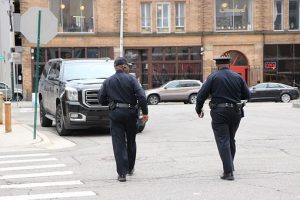New Jersey Employment Law Case Examines the Effect of Amendments Concerning Time to File a Lawsuit for Wage and Hour Violations
The New Jersey Wage and Hour Law and Wage Payment Law
Like the Federal Fair Labor Standards Act, New Jersey’s Wage and Hour Law requires that employers pay non-exempt employees minimum wage for all hours that they work, and overtime (time and a half) when employees work more than forty hours per week. New Jersey’s Wage Payment Law requires that employers pay employees pay all wages that they are due, and sets forth the timing and procedures for payments and permitted deductions. This is a much-litigated area of New Jersey employment law.
wages that they are due, and sets forth the timing and procedures for payments and permitted deductions. This is a much-litigated area of New Jersey employment law.
Suits under the New Jersey Wage and Hour Law and Wage Payment Law have long been required to be brought within two years of the violations or they would be time barred. However, in 2019 the New Jersey Legislature amended both laws to extend the time for filing a civil lawsuit for violation of the laws from two to six years. The amendments were silent about whether they would apply retroactively or only going forward. Generally, unless the Legislature provides for retroactive application of new statutes of limitations they apply only prospectively – in other words they normally apply only going forward to acts which occurred after the amendment, not looking backward to what happened before. These amendments were to take effect immediately upon enactment, which occurred on August 6, 2019.
 New Jersey Lawyers Blog
New Jersey Lawyers Blog



 Against Discrimination has been amended many times since then to expand the protections against discrimination in employment, and decisions by New Jersey courts have interpreted the Law to provide much broader protections than those provided by similar Federal statutes such as the Federal
Against Discrimination has been amended many times since then to expand the protections against discrimination in employment, and decisions by New Jersey courts have interpreted the Law to provide much broader protections than those provided by similar Federal statutes such as the Federal 
 the sale of a business. Likewise, whether or not there are restrictive covenants, New Jersey employment law imposes on employees a duty of loyalty to their employers. The Appellate Division recently
the sale of a business. Likewise, whether or not there are restrictive covenants, New Jersey employment law imposes on employees a duty of loyalty to their employers. The Appellate Division recently  Eligible veterans include only those who received a discharge not characterized as dishonorable and who served at least 90 days in World War I and World War II, or who served at least 14 days in the operations area in the following conflicts: the Korean War; the Vietnam War; the Lebanon Crisis of 1958; the Lebanon peacekeeping mission in the 1980s; the Grenada peacekeeping mission in 1983; the Panama peacekeeping mission; Operation Desert Shield/Desert Storm; Operation Northern Watch and Operation Southern Watch; Operation Restore Hope in Somalia; Operations Joint Endeavor and Joint Guard in Bosnia; Operation Uphold Democracy in Haiti (if the veteran received the Armed Forces Expeditionary Medal for their Haitian service); Operation Enduring Freedom; and Operation Iraqi Freedom. “Veterans” also include service members receiving injuries in those operations regardless of the length of their service in them.
Eligible veterans include only those who received a discharge not characterized as dishonorable and who served at least 90 days in World War I and World War II, or who served at least 14 days in the operations area in the following conflicts: the Korean War; the Vietnam War; the Lebanon Crisis of 1958; the Lebanon peacekeeping mission in the 1980s; the Grenada peacekeeping mission in 1983; the Panama peacekeeping mission; Operation Desert Shield/Desert Storm; Operation Northern Watch and Operation Southern Watch; Operation Restore Hope in Somalia; Operations Joint Endeavor and Joint Guard in Bosnia; Operation Uphold Democracy in Haiti (if the veteran received the Armed Forces Expeditionary Medal for their Haitian service); Operation Enduring Freedom; and Operation Iraqi Freedom. “Veterans” also include service members receiving injuries in those operations regardless of the length of their service in them.
 by having them fill a higher or more difficult position while paying them for a lower or less difficult one. The
by having them fill a higher or more difficult position while paying them for a lower or less difficult one. The 
 mean the
mean the